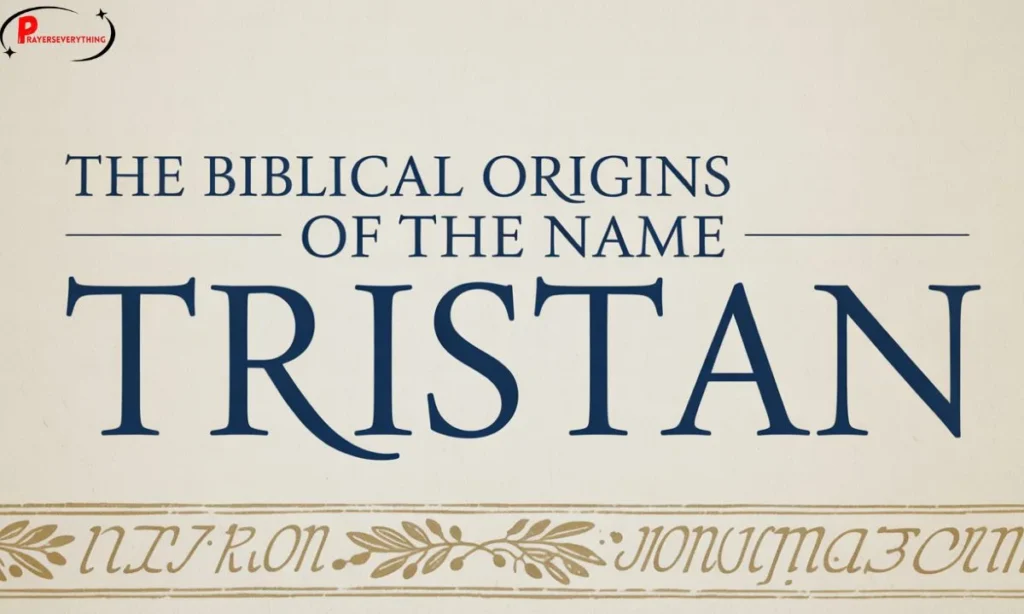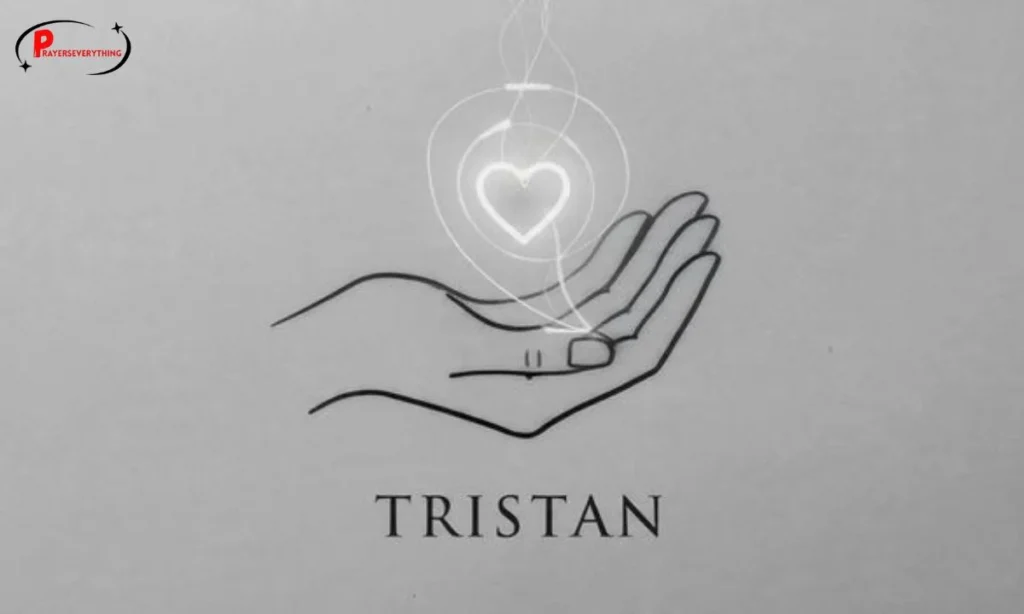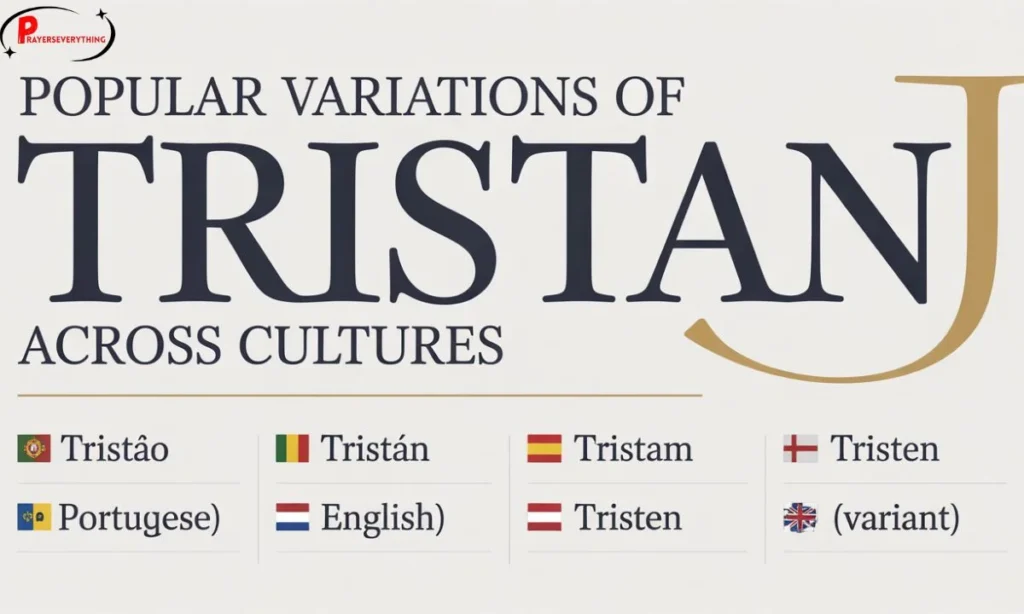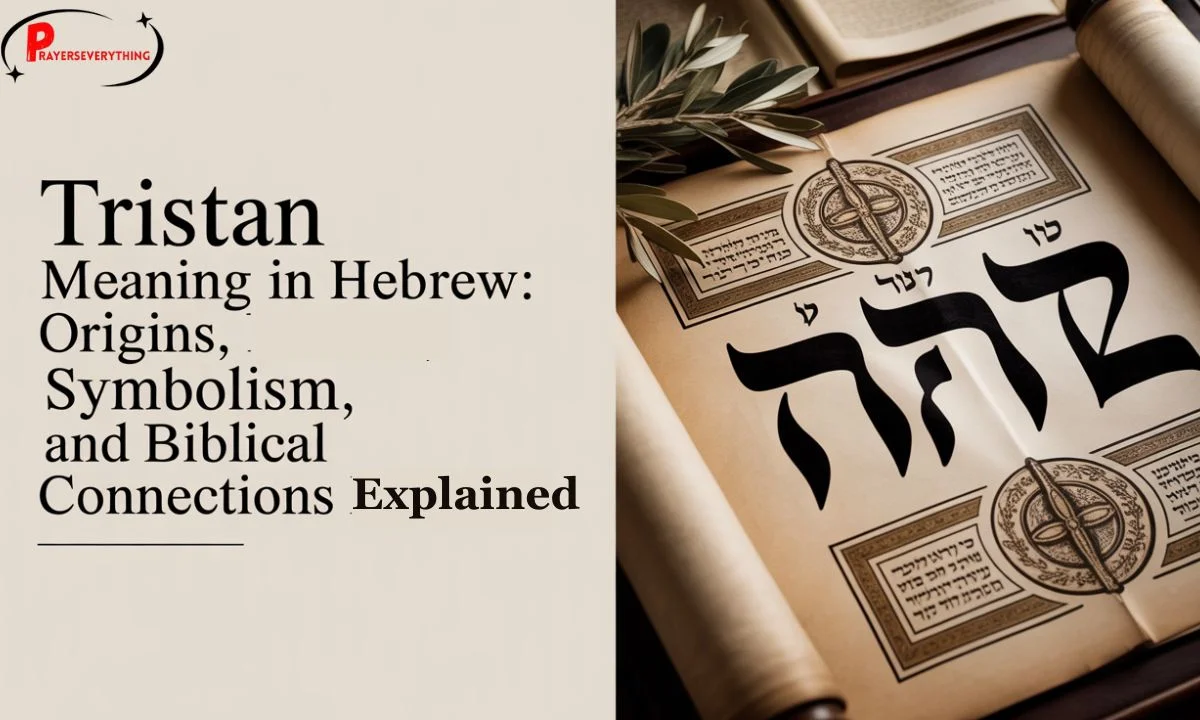The name Tristan carries deep historical and cultural significance worldwide. Many parents search for meaningful names with spiritual connections today. Understanding Tristan’s Hebrew meaning reveals fascinating linguistic and religious insights. This comprehensive guide explores every aspect of this timeless name.
What Does Tristan Mean in Hebrew?
Tristan doesn’t have a direct Hebrew origin or translation available. The name primarily stems from Celtic and French linguistic roots. However, Hebrew transliteration provides interesting insights into this popular name. Jewish families often adapt foreign names into Hebrew phonetic equivalents.
Literal Translation of Tristan in Hebrew
The Hebrew transliteration of Tristan is טריסטן (pronounced Tree-stan). This phonetic adaptation maintains the original name’s sound and character. Hebrew speakers can easily pronounce this transliterated version in conversation. The transliteration follows standard Hebrew linguistic rules and conventions carefully.
Key points about Hebrew transliteration:
- Hebrew uses consonant-based writing system for foreign name adaptation
- Vowel sounds are added through diacritical marks called nikud
- Transliterated names maintain original pronunciation as closely as possible
- Modern Hebrew commonly adopts international names through phonetic spelling
The Etymology Behind the Name Tristan
Tristan originates from the Celtic word “drest” meaning tumult. Tristan Name Meaning Bible discussions often explore how the name reflects emotional depth and inner struggle. French medieval literature popularized this name through romantic legendary tales. The name evolved through various European languages over many centuries. Latin influence ultimately transformed the name into its current recognizable form.
Etymology breakdown:
| Origin | Word | Meaning | Language Period |
| Celtic | Drest | Tumult/Riot | Ancient Celtic |
| Welsh | Trystan | Sad/Sorrowful | Medieval Welsh |
| French | Tristan | Knight’s name | Medieval French |
| Latin | Tristis | Sad/Melancholy | Classical Latin |
The Biblical Origins of the Name Tristan

Tristan does not appear in the original Hebrew biblical texts anywhere. The Bible contains no direct references to this particular name. Biblical names typically have Hebrew, Aramaic, or Greek linguistic origins. Tristan emerged centuries after biblical texts were originally written down.
Tristan’s Connection to Ancient Hebrew Culture
Ancient Hebrew culture prioritized names with spiritual and prophetic meanings. Biblical names often reflected God’s character or divine intervention stories. Parents chose names based on the circumstances surrounding a child’s birth. Tristan follows a different cultural naming tradition entirely from Hebrew.
Biblical naming conventions vs. Tristan:
- Hebrew names often contain “El” or “Yah” (God references)
- Biblical names describe character traits or divine promises given
- Tristan lacks theophoric elements common in Hebrew naming traditions
- The name reflects medieval European rather than ancient Hebrew culture
Old Testament References and Interpretations
The Old Testament contains no references to Tristan whatsoever today. Hebrew scriptures focus on Israelite genealogies and Middle Eastern names. Names like David, Samuel, and Joshua dominate biblical narratives throughout. Tristan belongs to later European literary and cultural traditions instead.
Tristan in Hebrew Scripture: Is It Mentioned in the Bible?
Tristan never appears in any version of the Hebrew scripture available. The name isn’t found in the Christian Old or New Testaments. Jewish Tanakh and the Christian Bible contain different names from antiquity. Medieval European names like Tristan emerged long after biblical canonization.
Biblical search results:
- Hebrew Bible (Tanakh): No mention of Tristan found anywhere
- Septuagint (Greek Old Testament): Zero references to this name
- New Testament: No character or person called Tristan exists
- Apocryphal texts: Still no biblical connection to Tristan discovered
Why People Search for Biblical Connections
Many people assume all traditional names have biblical religious origins. Parents often seek names with spiritual significance for their children. Biblical names carry weight in Jewish and Christian communities worldwide. Tristan’s popularity leads to curiosity about potential scriptural connections.
The name sounds similar to biblical names like Simeon or Sebastian. This phonetic resemblance creates confusion about its actual historical origins. People conflate European medieval names with ancient biblical naming traditions. Understanding true origins helps parents make informed naming decisions carefully.
Celtic vs. Hebrew Origins: Understanding Tristan’s True Roots
Tristan definitely originates from Celtic and French linguistic and cultural traditions. The name gained prominence through Arthurian legends and medieval romance. Celtic mythology celebrated heroes with names reflecting strength and character. Hebrew naming traditions followed completely different linguistic and spiritual patterns.
Celtic Name Traditions
Celtic cultures valued names connected to nature and warrior qualities. Druids and tribal leaders chose names with prophetic significance attached. The Celts spread their naming conventions throughout ancient European regions. Tristan represents typical Celtic naming patterns from this historical period.
Celtic naming characteristics:
- Names often described physical traits or personality characteristics displayed
- Warrior culture influenced heroic and strong name choices significantly
- Nature elements frequently appeared in traditional Celtic name selection
- Oral traditions preserved naming customs across multiple generations successfully
Hebrew Name Traditions
Hebrew names always carried deep theological and covenantal meaning throughout. Parents named their children based on divine encounters or answered prayers. Names reflected God’s promises, character attributes, or prophetic future destiny. This tradition continues in modern Jewish communities worldwide today.
Comparison table:
| Aspect | Celtic Names | Hebrew Names |
| Primary Focus | Nature, warriors | God’s character |
| Meaning Source | Physical traits | Spiritual significance |
| Cultural Context | Tribal heritage | Covenant relationship |
| Religious Connection | Pagan mythology | Monotheistic faith |
| Example Names | Tristan, Arthur | David, Samuel |
Symbolism and Spiritual Meaning of Tristan

Tristan symbolizes courage, romance, and tragic beauty in literature. The legendary knight Tristan represented chivalry and passionate love deeply. Modern parents choose this name for its romantic associations today. Spiritual meaning varies based on individual family traditions and beliefs.
Numerological Significance in Hebrew Tradition
Hebrew numerology (gematria) assigns numerical values to letters in names. The transliterated Hebrew spelling טריסטן has specific numerical value calculations. Numerology enthusiasts find meaning in these calculated sums and patterns. Traditional Judaism doesn’t emphasize numerology for non-Hebrew origin names.
Numerological breakdown:
- ט (Tet) = 9
- ר (Resh) = 200
- י (Yod) = 10
- ס (Samekh) = 60
- ט (Tet) = 9
- ן (Final Nun) = 700
- Total = 988
Some interpret 988 as symbolizing completion and divine purpose fulfilled. Others see it representing transformation and a spiritual journey toward wisdom. Numerological interpretations remain highly subjective and vary across different traditions.
Character Traits Associated with the Name Tristan
People named Tristan often exhibit creative and artistic personality tendencies. The name suggests romantic, passionate, and deeply emotional character traits. Cultural associations with the legendary knight influence modern name perceptions. Parents choosing Tristan often value creativity and emotional intelligence highly.
Common personality associations:
- Romantic and deeply passionate about relationships and causes pursued
- Creative thinkers with strong artistic or musical inclinations have shown
- Loyal friends who value deep connections over superficial relationships
- Sensitive souls who feel emotions intensely and express them openly
Spiritual Lessons from the Name’s Meaning
The meaning “sorrowful” or “tumultuous” offers profound spiritual lessons learned. Life involves navigating joy and sorrow with equal grace displayed. Tristan’s story teaches about love’s transformative power despite tragic circumstances. Modern spiritual interpretations focus on resilience through life’s inevitable challenges.
Hebrew Names Similar to Tristan
While Tristan isn’t Hebrew, similar-sounding names exist in Jewish tradition. These names share phonetic qualities or thematic meanings worth exploring. Jewish families seeking similar alternatives have several beautiful options available. Each Hebrew name carries its own unique spiritual significance today.
Tristram: A Hebrew Alternative
Tristram represents a variation closer to potential Hebrew adaptation possibilities. This name shares the same Celtic roots as Tristan originally. Some Jewish communities have adopted Tristram as a Hebrew-friendly alternative. The name maintains similar pronunciation while feeling more traditionally adapted.
Names with Similar Meanings in Hebrew
Hebrew offers names that capture similar emotional or spiritual themes:
Names meaning “sorrowful” or “compassionate”:
- Amos (עָמוֹס) – Burdened or carried by God faithfully
- Job (אִיּוֹב) – Persecuted or afflicted yet faithful spiritually
- Naomi (נָעֳמִי) – Pleasant, though she chose Mara (bitter) instead
Names meaning “strong” or “warrior”:
- Gideon (גִּדְעוֹן) – Mighty warrior who leads courageously forward
- Ezra (עֶזְרָא) – Helper or one who provides assistance needed
- Ari (אֲרִי) – Lion, symbolizing strength and courage displayed
Popular Hebrew alternatives:
| Hebrew Name | Pronunciation | Meaning | Biblical Reference |
| Asher | Ah-sher | Happy/Blessed | Genesis 30:13 |
| Eitan | Ay-tahn | Strong/Firm | 1 Kings 4:31 |
| Noam | No-ahm | Pleasantness | Ruth 1:20 |
| Tomer | Toh-mer | Palm tree | Psalm 92:12 |
How to Write Tristan in Hebrew Letters
Writing Tristan in Hebrew requires understanding transliteration principles and rules. Hebrew uses a consonant-based alphabet system without vowel letters. Modern Hebrew adapted to include foreign names through phonetic spelling. The transliteration maintains pronunciation while respecting the Hebrew linguistic structure carefully.
Hebrew Transliteration Guide
The name Tristan transliterates as טריסטן in Hebrew script. Each letter represents specific sounds from the original English pronunciation. Hebrew readers can pronounce this transliteration accurately without difficulty.
Letter-by-letter breakdown:
- ט (Tet) – “T” sound, emphatic version
- ר (Resh) – “R” sound, slightly rolled
- י (Yod) – “I” vowel sound indication
- ס (Samekh) – “S” sound, soft
- ט (Tet) – “T” sound again
- ן (Final Nun) – “N” sound, word-ending form
Pronunciation Tips for Hebrew Speakers
Hebrew speakers should emphasize the first syllable when saying Tristan. The “i” sound should be long and clear throughout. Rolling the “r” slightly gives authentic Hebrew pronunciation quality. The final “n” sound should be soft without heavy nasalization.
Pronunciation guide:
- Stress: TREE-stahn (emphasis on first syllable clearly)
- “R” sound: Guttural or slightly rolled, typical Hebrew style
- “I” vowel: Long “ee” sound, not short “ih” sound
- Final “n”: Soft, similar to Hebrew final nun pronunciation
Popular Variations of Tristan Across Cultures

Tristan appears in numerous forms across different languages and cultures. Each variation maintains the core meaning while adapting phonetically appropriately. Understanding these variations helps appreciate the name’s global cultural reach. Parents can choose the version that resonates most personally.
International variations table:
| Language | Variation | Pronunciation | Cultural Notes |
| French | Tristan | Tree-stahn | Original medieval form |
| Spanish | Tristán | Tree-stahn | Accent added |
| German | Tristan | TRIS-tahn | Germanic emphasis |
| Italian | Tristano | Tree-STAH-no | Italian ending |
| Welsh | Trystan | TRUS-tan | Original Celtic form |
| Portuguese | Tristão | Tree-STOW | Nasal ending |
| Russian | Тристан | Tree-STAHN | Cyrillic script |
Modern Usage Statistics
Tristan ranks consistently in the top baby name charts worldwide annually. English-speaking countries show a particularly strong preference for this name. The name appeals to parents seeking classic yet distinctive choices. Modern variations include feminine forms like Trista or Tristina.
Popularity data:
- United States: Top 200 boys’ names consistently maintained
- United Kingdom: Top 300 names with steady usage patterns
- Canada: Popular in both English and French-speaking regions
- Australia: Growing popularity over the past two decades has been observed
Is Tristan a Jewish or Christian Name?
Tristan belongs to neither specifically Jewish nor Christian naming traditions. The name originated in Celtic pagan culture before Christianity spread. Medieval Christian romance literature popularized Tristan significantly throughout Europe. Modern families from all religious backgrounds choose this name.
Religious Usage Throughout History
Christian families adopted Tristan during the medieval European Christianization period extensively. The legend of Tristan and Isolde became part of the Christian literary tradition. However, the name lacks explicit biblical or theological Christian connections. Catholic saints’ calendars don’t include any Saint Tristan officially recognized.
Religious adoption patterns:
- Medieval Christianity: Adopted through romantic literature and chivalric traditions
- Judaism: Rarely used traditionally, increasingly adopted in modern times
- Secular families: Very popular among non-religious or interfaith households
- Other religions: Occasionally used in multicultural, diverse religious communities
Modern Popularity Among Jewish Families
Contemporary Jewish families increasingly choose non-Hebrew names for children. Tristan appears more frequently in Reform and secular Jewish communities. The name’s romantic associations appeal across various religious backgrounds today. Jewish families often select names balancing tradition with modern preferences.
Factors influencing Jewish adoption:
- Desire for names that work in multiple cultural contexts
- Appreciation for romantic and literary name associations displayed
- Less emphasis on strictly biblical naming requirements nowadays
- Integration into broader multicultural societies where families live
Famous People Named Tristan: Historical and Modern Examples
Many notable individuals bear the name Tristan across various fields. These figures have contributed to the name’s continued popularity worldwide. From entertainment to sports, Tristans make significant cultural impacts. Their achievements inspire parents considering this name for their children.
Notable Tristans:
Entertainment and Arts
- Tristan Tzara: Romanian-French poet, founder of the Dadaist movement
- Tristan Wilds: American actor, musician from “The Wire” series
- Tristan Prettyman: American singer-songwriter with folk-pop style music
- Tristan MacManus: Irish ballroom dancer, “Dancing with Stars” professional
Sports and Athletics
- Tristan Thompson: NBA basketball player, championship winner, celebrated
- Tristan Jarry: NHL goaltender for the Pittsburgh Penguins team
- Tristan Viatore: Professional baseball player in the minor leagues
- Tristan Blackmon: American professional soccer player for LAFC
Literature and Academia
- Tristan Egolf: American novelist known for an innovative literary style
- Tristan Taormino: Feminist author and sex educator activist
- Various scholars and researchers in multiple academic disciplines
Impact on name popularity:
- Celebrity usage increases public awareness and name recognition significantly
- Positive associations with successful individuals enhance a name’s appeal
- Media exposure through entertainment keeps the name culturally relevant today
- Sports figures provide strong, masculine associations for boys’ names
Frequently Asked Questions
What does Tristan mean in the Bible?
Tristan doesn’t appear in biblical texts at all. The name has Celtic and French origins, not Hebrew roots. Biblical names like David or Samuel have completely different origins. Parents seeking biblical names should explore authentic Hebrew scripture names.
Is Tristan a Hebrew name originally?
No, Tristan is not a Hebrew name by origin. The name comes from Celtic culture and medieval literature. Hebrew transliteration exists, but it doesn’t make it Hebrew originally. Jewish families can use it, but it’s culturally European.
What does the name Tristan mean spiritually?
Tristan means “sorrowful” or “tumultuous” from Latin tristis originally. Spiritually, it represents navigating life’s challenges with courage displayed. The name teaches about love, loyalty, and resilience clearly. Personal spiritual meaning varies by individual family beliefs held.
How popular is the name Tristan today?
Tristan ranks in top 200-300 boys’ names consistently worldwide. The name enjoys steady popularity without being overly common. Parents appreciate its romantic literary associations and strong sound. Usage spans multiple cultures and religious backgrounds successfully today.
Can Jewish families use the name Tristan?
Yes, Jewish families can absolutely use Tristan without issues. Modern Jewish naming practices include non-Hebrew names frequently today. Reform and secular Jewish communities particularly embrace diverse name choices. Many Jewish Tristans exist in contemporary communities worldwide successfully.
What are good middle names for Tristan?
Hebrew middle names pair beautifully with Tristan for balance:
- Tristan David (טריסטן דָּוִד): Combines Celtic and Hebrew perfectly
- Tristan Elijah (טריסטן אֵלִיָּהוּ): Strong biblical prophet connection
- Tristan Gabriel (טריסטן גַּבְרִיאֵל): Angel name meaning “God’s strength”
- Tristan Benjamin (טריסטן בִּנְיָמִין): Beloved youngest son reference
Does Tristan have any biblical equivalent names?
No direct biblical equivalent exists for Tristan’s meaning exactly. Names like Amos (burdened) share emotional thematic similarity. Job represents suffering with faith, offering comparable spiritual lessons. Parents wanting biblical alternatives should explore Hebrew scripture names.
What is the female version of Tristan?
Common feminine variations include:
- Trista: Direct feminine adaptation, popular in America
- Tristina: More elaborate feminine form with Italian influence
- Tristana: Spanish-style feminine version gaining popularity recently
- Trysta: Alternative spelling maintaining similar sound and meaning
Last Words
Tristan represents a beautiful name with a rich cultural heritage displayed. While not Hebrew in origin, it carries meaningful symbolism. The name’s romantic associations and strong sound appeal universally. Parents choosing Tristan give children a distinguished, timeless name.
Understanding Tristan’s true origins helps families make informed decisions wisely. The name works beautifully across religious and cultural boundaries today. Whether seeking biblical connections or Celtic heritage, knowledge empowers choice. Tristan remains a powerful name choice for modern families worldwide.

Noah shares heartfelt insights on Prayer, Bible teachings, and spiritual blessings, guiding readers with meaningful words and synonyms that inspire faith, hope, and a deeper connection to God’s presence.

